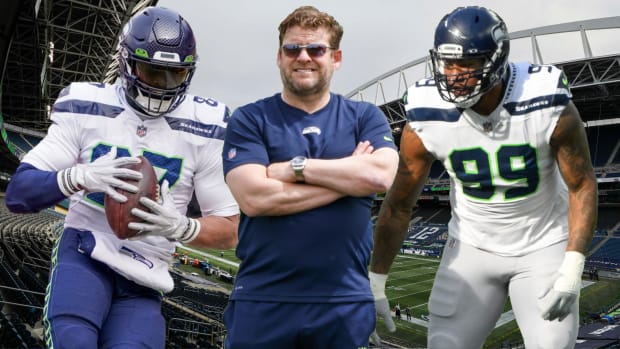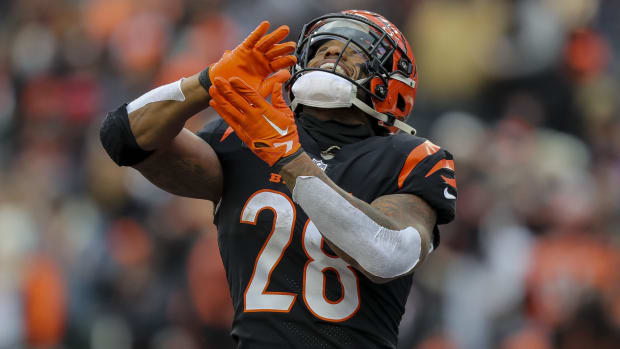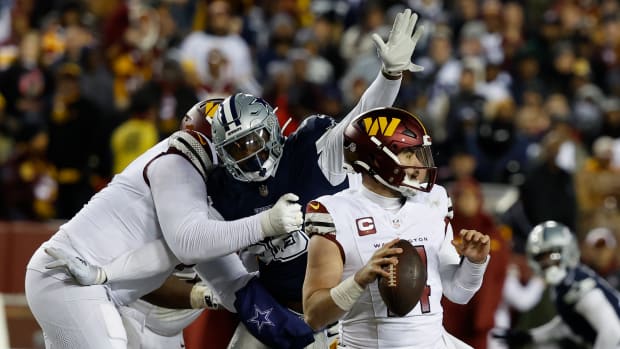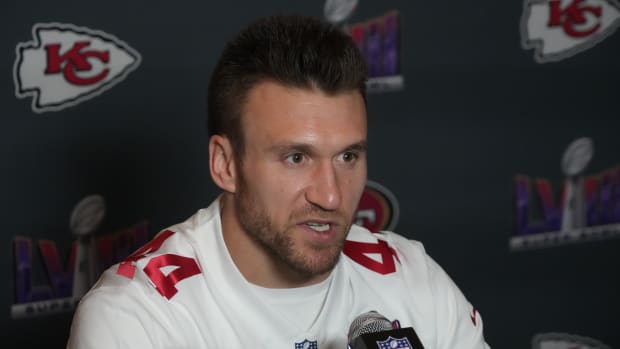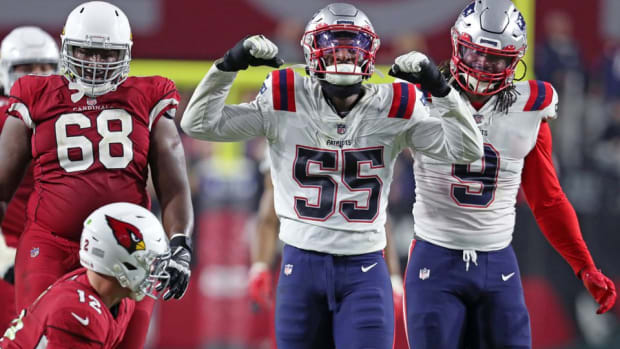Bears should be held accountable for signing Ray McDonald in first place
On Monday, the Chicago Bears announced the release of linebacker/defensive end Ray McDonald, who the team had signed as a free agent in March. McDonald was a free agent because his former team, the 49ers, cut him loose last December after he was accused of domestic violence and sexual assault in separate incidents. His felony domestic violence arrest happened last August, and he was eventually not charged. However, he's not been charged with or cleared of the December sexual assault allegations. McDonald has sued his alleged victim in that case, and the victim has responded with a countersuit.
Still, the Bears felt confident in signing him to a low-risk deal, until McDonald was arrested Monday for misdemeanor domestic violence and child endangerment. According to the Santa Clara, Calif. police department, McDonald "physically assaulted the victim while she was holding a baby."
49ers' Ahmad Brooks sued for sexual assault by Ray McDonald accuser
And at that point, the Bears apparently decided they had taken a bad risk.
"We believe in second chances, but when we signed Ray we were very clear what our expectations were if he was to remain a Bear," General manager Ryan Pace said in a statement. “He was not able to meet the standard and the decision was made to release him."
It's a brisk statement to make, but the Bears should be held far more accountable for the way they handled this entire scenario than they've been so far. The franchise did everything in its power to defend its signing of McDonald, going out of its way to praise the player and discredit the victims because adding a player of McDonald's talent was expedient in a football sense. There's no reason to put a softer point on it.
When the McDonald signing was announced, defensive coordinator Vic Fangio, who coached McDonald in San Francisco for four seasons, said that “the headlines, I think, looked worse than what actually happened, but they happened. He made a mistake putting himself in those positions for that to happen. But ultimately he was not charged with anything, so we felt good about it here.”
Fangio wanted McDonald on his team because he understood how to play strong-side defensive end in his coach's 3-4 base defense. And while it's never wise to infer that people don't care about these more serious issues, Fangio clearly blew over those issues on his way to his 2015 playbook.
Seahawks' Frank Clark selection puts Carroll, Schneider on the defensive
That said, it was the comments of team chairman George McCaskey that brought the most scorn and derision, and rightly so.
"I don't want to interfere with any league investigations that might be ongoing," McCaskey said on March 24 from the NFL's owners meetings, when asked how deep he dug into McDonald's past. "I did speak with a couple people at the league. They couldn't offer me a lot of information. But I thought that was an important element to cover.
"An alleged victim, I think—much like anybody else who has a bias in this situation—there's a certain amount of discounting in what they have to say. But our personnel department had done its work looking into the background and the incidents. And we had the benefit of two coaches who had been with him with the 49ers. And I spoke to Vic Fangio and came away very impressed with what Vic had to say about him—that he's well-liked by his teammates, by his coaches. His strong work ethic—that he's considered a leader on the field. And speaking to Vic and Ray especially, I was convinced that he’s sufficiently motivated to make this work."
McCaskey also spoke to Urban Meyer, for whom McDonald played at Florida, and McDonald's parents. And that's apparently where it was left.
In the end, the process probably went a lot like this: A general manager and a coaching staff agrees that a player is worth his troubled past, and ownership must sign off on the deal. McCaskey said that he was concerned about McDonald's "bad decision-making," putting himself in the wrong place at the wrong time, and failing to withdraw from the situation at the right time. And in doing so, McCaskey blurred the line, making it seem as if his new player was less an aggressor and more an innocent bystander.
What was the difference this time around? McDonald was arrested on the Bears' watch, and when you get down to brass tacks, the NFL's real code of conduct is "don't get caught."
Seahawks didn't interview witnesses to Frank Clark incident
That's why the Bears were willing to give McDonald what they called a second chance, though he had been involved in more than one incident, charged or not. That's why the Cowboys signed former Carolina Panthers defensive end Greg Hardy after Hardy's own fairly horrific domestic violence arrest: because they need a pass-rusher, and Hardy is one of the best. That's why the Seattle Seahawks went out of their way to talk to all the "right people" before selecting Michigan defensive end Frank Clark in the second round of the 2015 draft. They didn't see an abuser, despite the charges filed against him, they saw a 270-pound defensive end whose speed belied his size: a player who could make a difference on the field. The Seahawks talked to their scouts, they talked to Clark's coaches... but they didn't reach out to the prosecutor in the case, or the witnesses in the Ohio hotel where Clark's assault happened, and they didn't make an attempt to speak to the victim.
• WERTHEIM & KAPLAN: Inside Greg Hardy's domestic violence case
It's one thing to avoid speaking to the victim in cases like this because you don't want that person to relive the trauma. But with McDonald, the Bears side-stepped that conversation for one simple reason: because they didn't want to take the chance that the whole truth would turn them against a potentially valuable roster addition.
And that's why the Bears can talk about second chances and standards and codes of conduct all they want, knowing full well that they stooped to Ray McDonald's level just so that they could try to pick a winner out of the bargain bin.
































